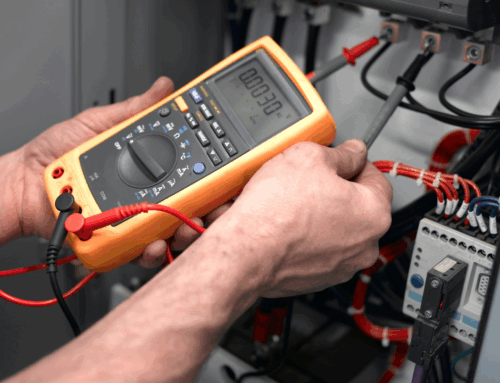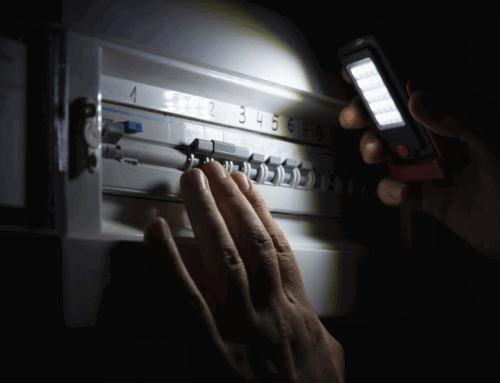Ensuring electrical safety in your business is not just a matter of compliance, but also one of protecting people, property, and assets. Electrical systems are integral to the operation of most businesses, but neglecting the required safety standards can lead to severe consequences. Whether you run a small shop or a large commercial enterprise, understanding the risks of ignoring electrical safety is essential for safeguarding both employees and customers.
1. Increased Risk of Electrical Fires
One of the most immediate and dangerous risks of ignoring electrical safety standards is the potential for electrical fires. Faulty wiring, overloaded circuits, outdated equipment, and improper installations can all contribute to electrical faults that may spark a fire. According to UK government statistics, electrical faults are one of the leading causes of workplace fires. Without adhering to safety regulations, such as those outlined in the IET Wiring Regulations (BS 7671), businesses put themselves at a higher risk of these devastating incidents. Not only can fires cause significant damage to property, but they can also lead to loss of life and injury to staff and customers.
2. Legal and Financial Consequences
Failure to meet electrical safety standards can have severe legal and financial repercussions for your business. In the UK, the Health and Safety at Work Act 1974 requires employers to ensure the safety of employees and visitors, which includes maintaining safe electrical systems. If an accident occurs due to negligence, your business could be held liable. This could result in hefty fines, legal fees, and compensation claims. Additionally, insurance policies may not cover claims if your business fails to meet required safety standards. Regular inspections and adherence to guidelines, such as obtaining an Electrical Installation Condition Report (EICR), help mitigate the risk of costly legal and financial consequences.
3. Increased Downtime and Disruption to Operations
Ignoring electrical safety standards can also result in frequent electrical faults and equipment malfunctions. When electrical systems fail, your business may experience prolonged periods of downtime, disrupting operations and affecting productivity. For example, an electrical fault in a retail environment could cause lighting to go out, resulting in a poor shopping experience for customers and a loss of sales. Similarly, manufacturing businesses could face delays in production if critical machinery is damaged by faulty wiring or improper installations. Ensuring regular maintenance and adherence to safety standards can prevent such disruptions and keep your business running smoothly.
4. Higher Maintenance and Repair Costs
When electrical systems are not maintained properly or do not meet safety standards, issues are often left unresolved until they escalate into major problems. The longer these issues are ignored, the more expensive it becomes to repair or replace faulty components. In addition to repair costs, businesses may incur additional expenses related to lost productivity or even the cost of temporary fixes. Routine inspections and upgrades to comply with safety standards, such as ensuring proper earthing and circuit protection, can help identify problems early and prevent costly repairs down the line.
5. Risk to Employee and Customer Safety
Employee and customer safety should always be a top priority for any business. Ignoring electrical safety can expose both groups to serious risks, including electrocution, burns, and electric shocks. Employees who work with or around electrical systems need to be trained in electrical safety procedures, and businesses should ensure that their systems are regularly inspected and maintained by certified electricians. Failure to comply with safety regulations increases the risk of accidents, which can lead to significant injuries and even fatalities. Additionally, your business may face reputational damage as a result of an injury, which could harm customer trust and brand image.
6. Damage to Equipment and Technology
Modern businesses rely heavily on electrical equipment and technology to function efficiently. Computers, phones, machinery, and other electrical devices are critical to daily operations. Electrical faults, such as power surges or inconsistent voltage, can damage sensitive equipment, causing it to fail or become permanently damaged. The cost of replacing this equipment can be substantial, not to mention the potential disruption it causes to your business activities. Regular maintenance and ensuring compliance with electrical safety standards can prevent damage to valuable technology and minimise the risk of financial losses.
7. Reduced Energy Efficiency
Electrical systems that are outdated or improperly maintained are less energy-efficient, which can increase your business’s operational costs. Poorly managed electrical installations may lead to excessive energy consumption, which not only harms the environment but also causes higher utility bills. By adhering to safety standards and upgrading outdated systems, businesses can improve their energy efficiency, reduce costs, and lower their carbon footprint. Energy-efficient lighting, proper insulation, and modern wiring can all contribute to better energy use in commercial spaces.
Ignoring electrical safety standards in your business is a risk that can have far-reaching consequences. From the danger of electrical fires and injury to legal and financial penalties, the stakes are high. By ensuring compliance with electrical safety regulations, conducting regular inspections, and investing in proper training for staff, businesses can reduce the likelihood of electrical hazards and ensure a safe working environment. The long-term benefits of adhering to electrical safety standards far outweigh the costs, protecting your business, employees, and reputation for years to come.







Leave A Comment